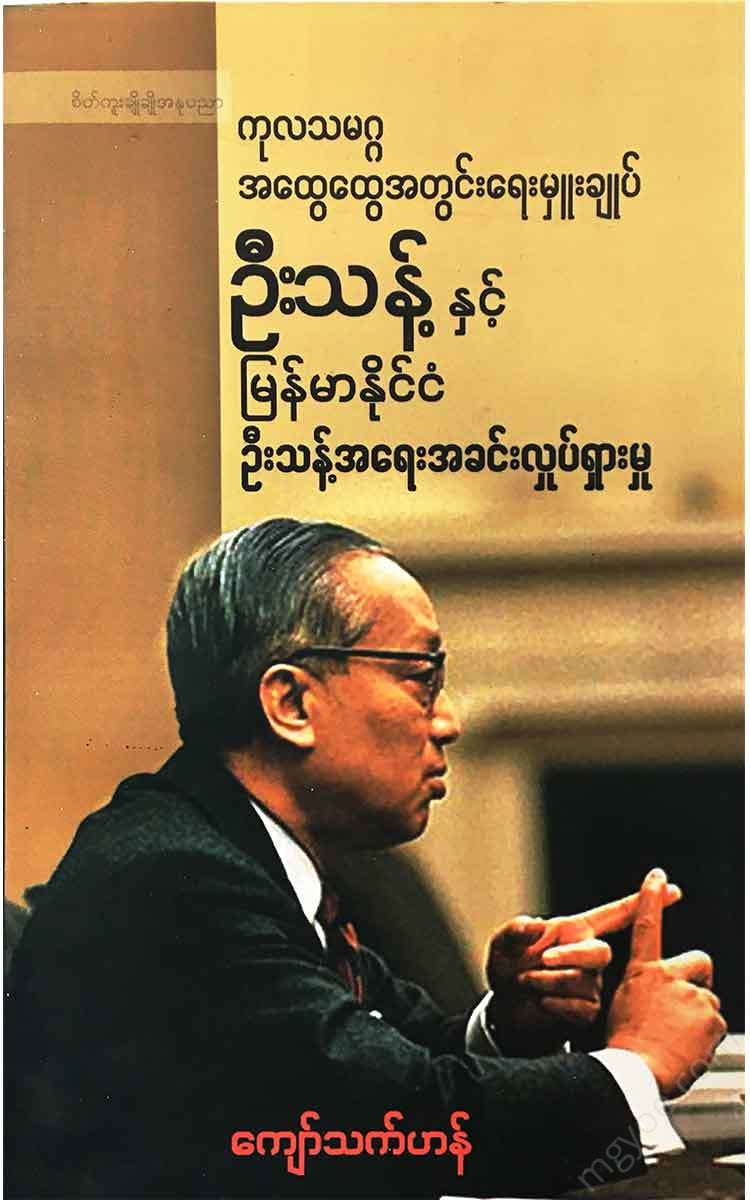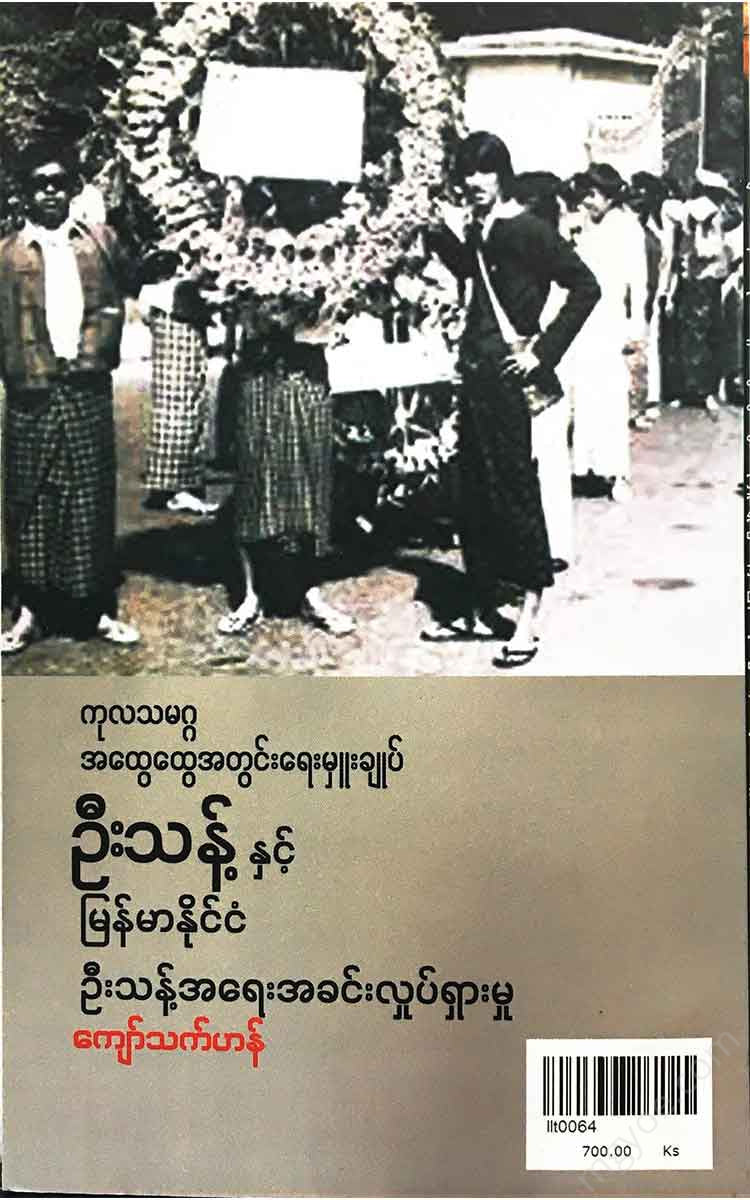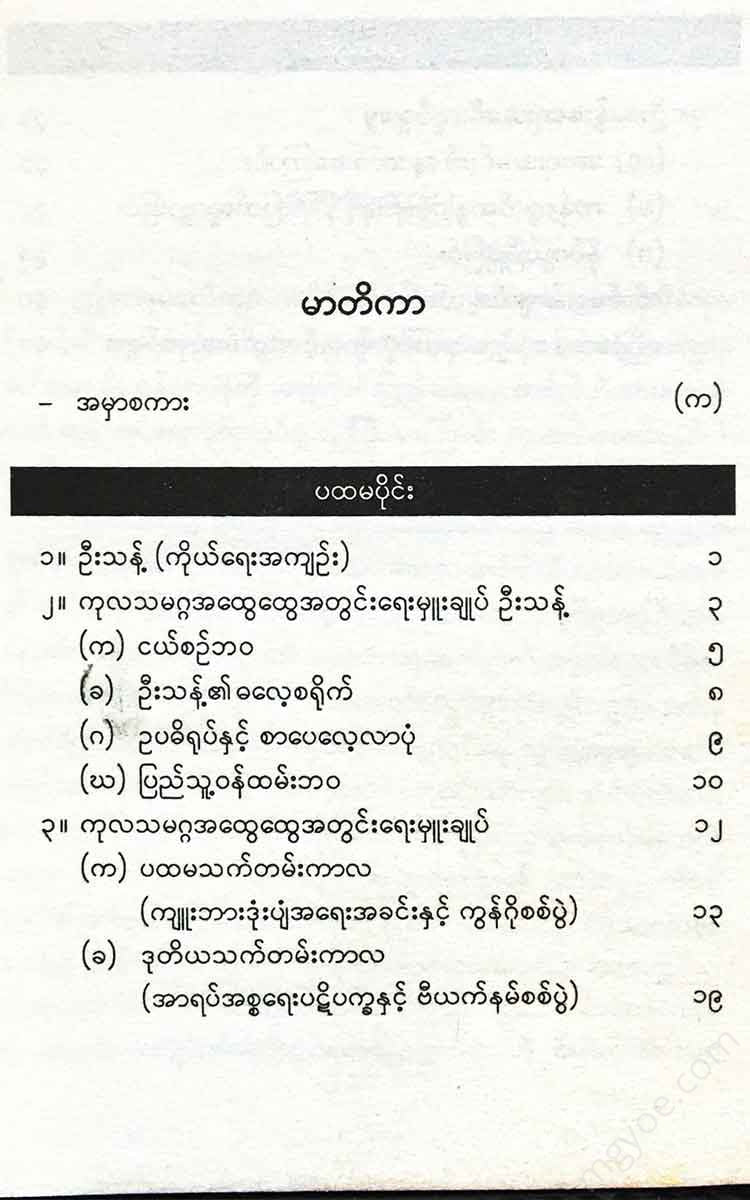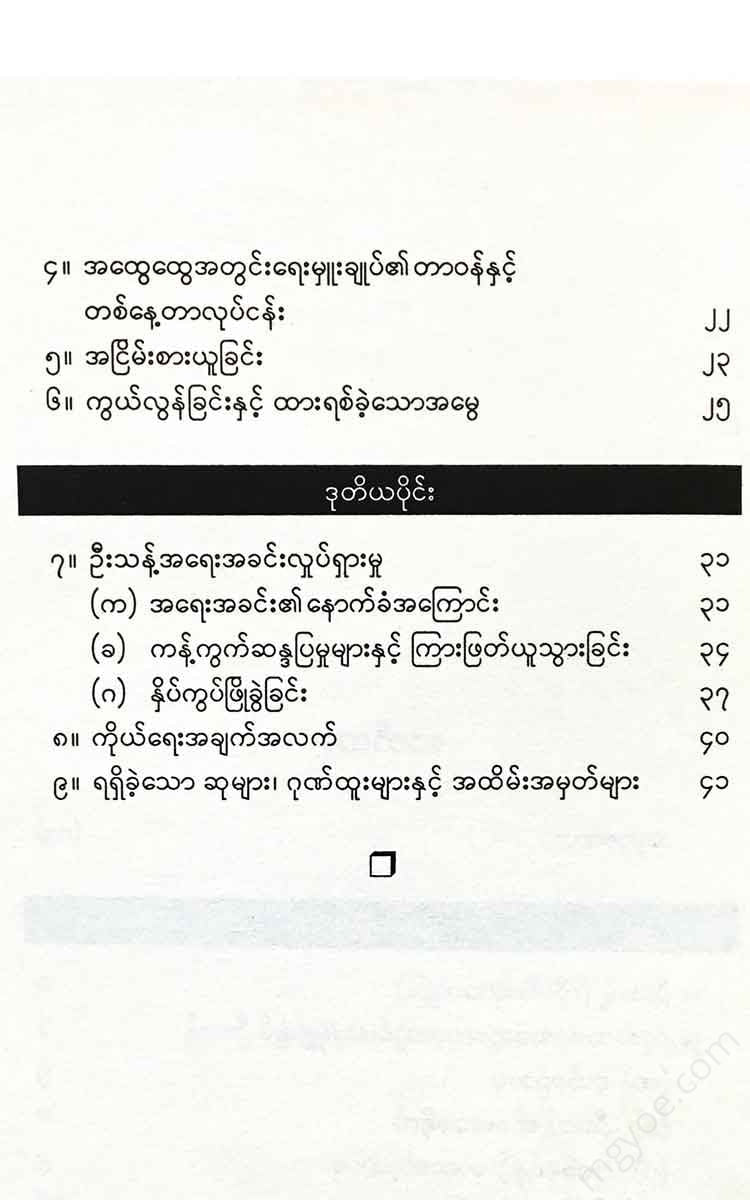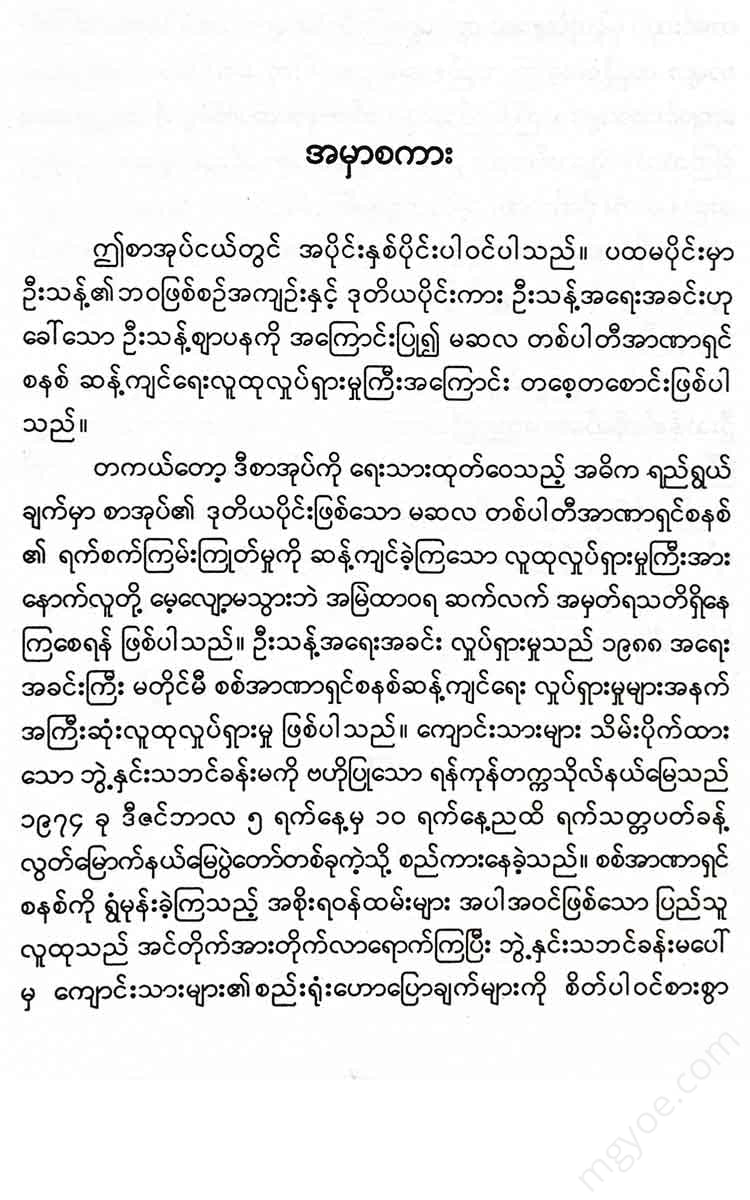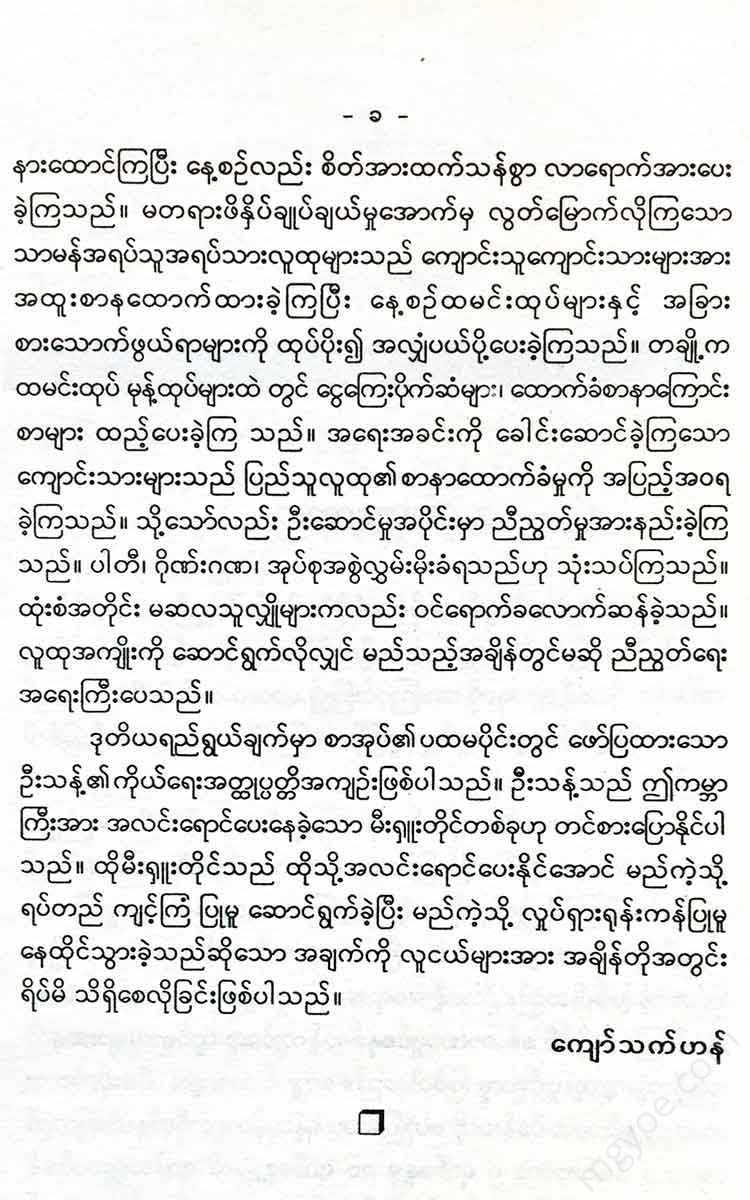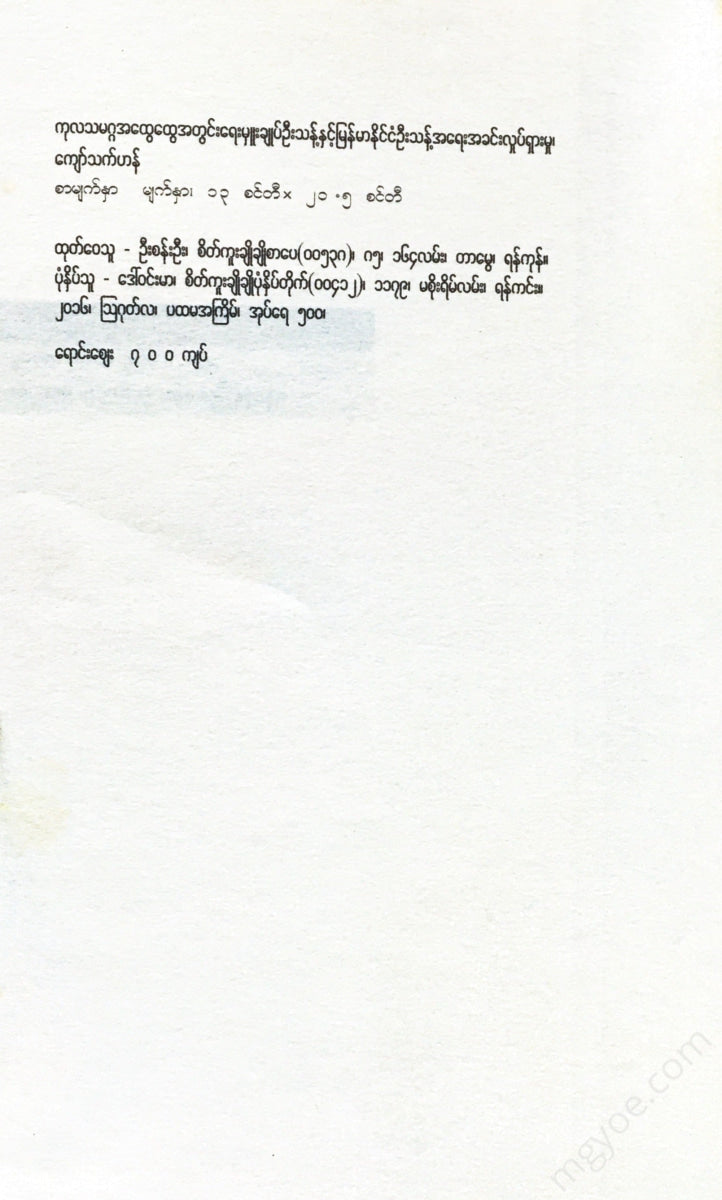စိတ်ကူးချိုချိုစာပေ
Kyaw Thet Han - U Thant and the U Thant Movement in Myanmar
Kyaw Thet Han - U Thant and the U Thant Movement in Myanmar
Couldn't load pickup availability
UN Secretary-General U Thant
U Thant, the third Secretary-General of the United Nations, was born on January 22, 1909, in Pantanaw. U Thant's father, U Po Nin, and mother, Daw Nan Thaung, were Buddhist Burmese. His siblings were U Khant,
U Thaung, U Tin Maung. U Thant's wife was Daw Thein Tin, and they had three children: U Maung Bo, U Tin Maung Thant, and Daw Aye Aye Thant. Historian Dr. Thant Myint Oo is U Thant's grandson, born to his daughter Daw Aye Aye Thant.
U Thant was educated at Pantanaw National High School and Rangoon University as a child. During the turbulent political climate of Burma, he positioned himself as a moderate between the fervent nationalists and the British loyalists. He was a close friend of Burma's first Prime Minister, U Nu, and served in various capacities in U Nu's government from 1948 to 1961. U Thant's calm and humble demeanor earned him the respect and affection of his friends and colleagues.
In 1961, U Thant was appointed Secretary-General after the death of UN Secretary-General De Hammarskjöld in a plane crash. During his first term as UN Secretary-General, U Thant facilitated the negotiations between US President John F. Kennedy and Soviet Premier Nikita Khrushchev over the Cuban Missile Crisis, which narrowly averted a major world war. In 1962, U Thant led Operation Green Belt, ending a separatist insurgency in the Congo.
On 2 December 1962, he was unanimously re-elected as Secretary-General by the Security Council for a second term. During his second term, U Thant became known for his public criticism of the United States' actions in the Vietnam War. He also helped to bring newly independent countries from Africa and Asia into the United Nations. U Thant declined an offer to serve a third term and retired in 1971.
U Thant died in 1974. He was a devout Buddhist and was the most prominent Burmese diplomat to have served on the international stage. He was greatly loved and respected by the Burmese people. When the military government failed to honor him, a mass uprising broke out in Yangon. The government violently suppressed the uprising, leaving many injured. In Burma, U Thant is known as Pantanaw U Thant, in honor of his hometown.
Childhood
U Thant was the eldest of four sons. U Thant's father, U Poe Nga, was born into a wealthy landowner and rice miller during the British era and was educated in Calcutta, India. He was the only person in Pantanaw who could communicate in English. Pyin, who was one of the founders of the Burma Research Society, also helped publish the Thuriya newspaper in Yangon. His family was Buddhist, but according to U Thant's grandson, U Thant Myint Oo, U Thant's father had Buddhist and Muslim ancestry from distant India and China, as well as Shan and Mon ancestry. U Poe Nga hoped that all four of his sons would graduate from university.
Apart from U Thant, his other sons, U Khant, U Thaung, and U Tin Maung, were politicians and writers.
U Poe Tsing collected a variety of American and British books and kept a private library. As a result, U Thant became an avid reader, and his schoolmates jokingly called him “the great thinker.” In addition to reading, he enjoyed various sports, including mountaineering, swimming, and bowling. While studying at Pantanaw National High School, he participated in the 1920 boycott of the University Act at the age of 11. He had dreams of becoming a journalist and wrote an article for the Union of Myanmar Scouts magazine, surprising his family. When U Thant was 14, his father, U Poe Tsing, died in a bitter inheritance dispute, leaving his mother, Daw Nan Thaung, and their four children in financial difficulty.
After his father's death, he felt that he would not be able to complete the four-year degree course, so he instead enrolled in a two-year teaching certificate course at the University of Rangoon in 1926. As the eldest son, he had to fulfill his responsibilities as a son and family. While studying at the university, he studied history under Professor D.G.E. Hall, along with U Nu, who would later become the Prime Minister of Burma.
U Thant's parents' relatives advised U Nu to look after him, and U Nu and U Thant soon became close friends. U Thant was elected secretary of the university's Philosophy Society and also of the Debating Society. While in Rangoon, he met J. S. Farnwell, founder of the Burma Books Club and the GUDM (The Burma Books Club and The World of Books) magazine. U Thant regularly contributed to the magazine. Farnwell, promising a good position, urged U Thant to complete his four-year university course and enter the civil service, but U Thant refused. After obtaining his teaching certificate, he returned to Pantanaw and in 1928 joined the Pantanaw National High School as a senior teacher. He kept in constant contact with Mr. Farnwell and U Nu, wrote articles regularly, and also participated in book translation competitions.
U Thant's customs
U Thant married Daw Thein Tin while he was still studying at the university. He left the university at the age of 20 and worked as a teacher to support his younger siblings. On 22 January 1964, at the age of 53, U Thant was 5 feet 7 inches tall and weighed 154 pounds. He did not drink alcoholic beverages, but he was said to smoke 14 to 15 cigarettes a day. He had a love of literature since childhood, and in his youth he read English novels whenever he had free time. He was fond of socialism, and before he was 20, he became a member of the first British Left Literary Club in Burma.







